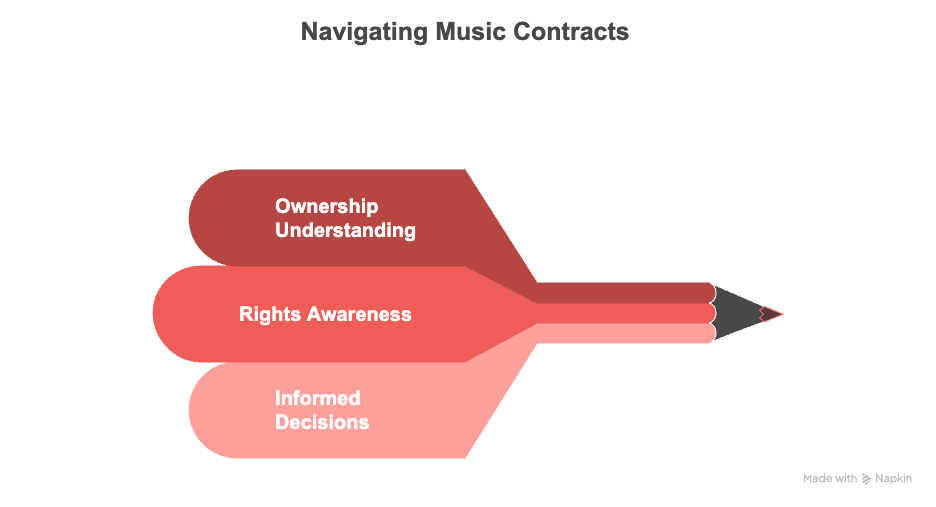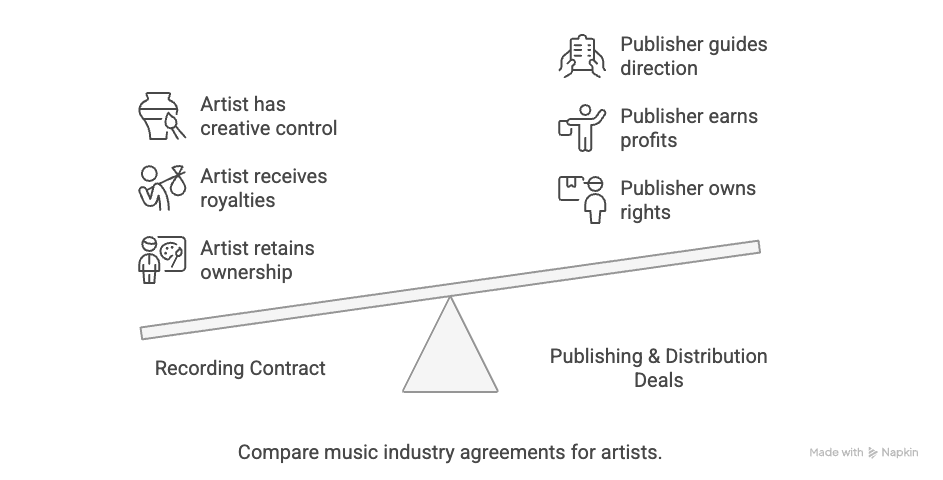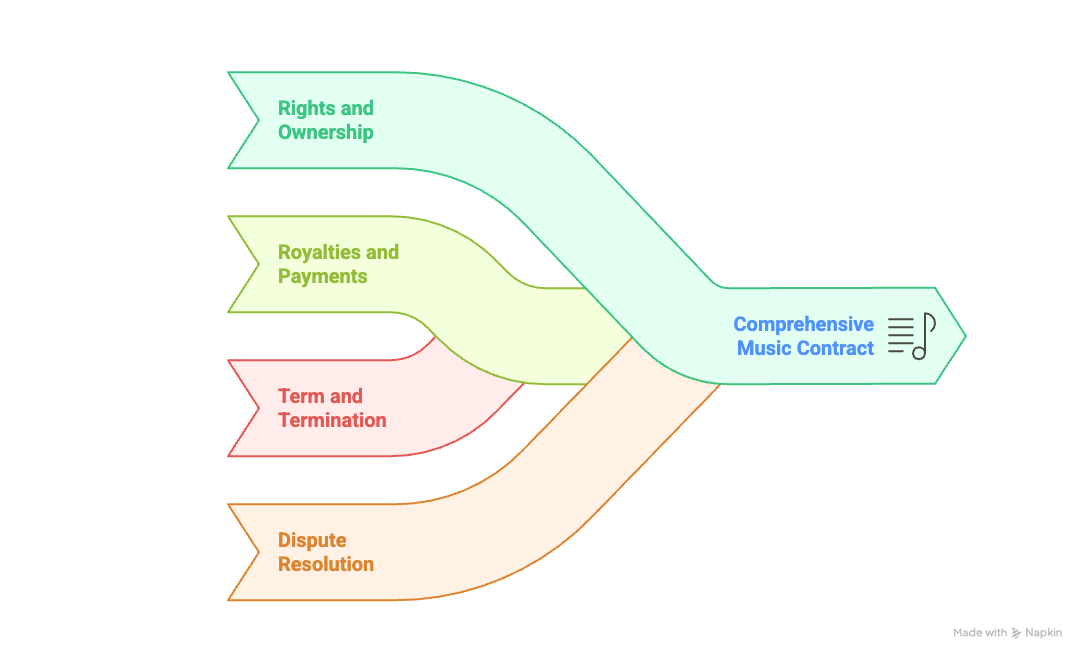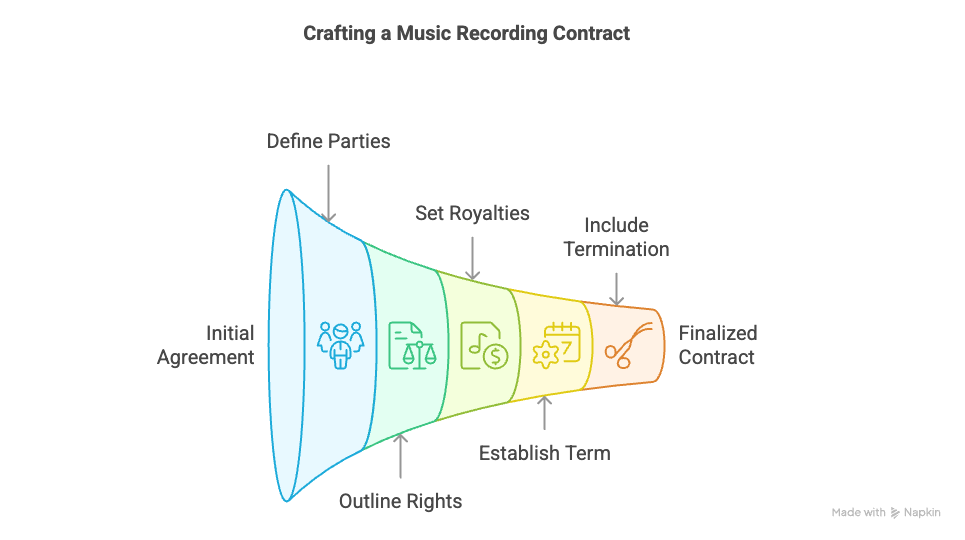
Master Ownership In Music Contracts: Artists Must Understand
Last Updated on May 11, 2025
Master ownership is the key to long-term control and revenue in the music industry. If you're an artist, producer, or indie label negotiating a recording deal, understanding who owns the master recordings-and what that actually means-is critical to your financial future.
This high-intent guide breaks down what master ownership is, how it impacts your rights and royalties, and what to include in a music contract to protect your interests.
What Is a Master Recording?
The master is the original, finalized version of a song or album-the version from which all digital streams, physical copies, and licensing deals are created. Whoever owns the master controls where and how that song can be released, licensed, or monetized.
Why Master Ownership Matters (and How You Profit From It)
If you don’t own the master, you can’t control or profit from key uses like:
- Sync licensing for film, TV, ads, or video games
- Streaming and distribution deals on platforms like Spotify, Apple Music, or YouTube
- Remixes and reissues
- Third-party licensing to brands or media
Owning your masters means you collect the money and make the decisions. Without ownership, you rely on royalty payments—often delayed, unclear, or reduced by recoupable costs.
Common Master Ownership Models in Music Contracts
1. Label-Owned Masters
Typical in major label deals. The label pays for production and marketing and keeps 100% of master rights. You earn royalties.
2. Artist-Owned Masters with Distribution License
Popular in indie deals. The artist owns the masters and grants a label or distributor permission to exploit them for a fixed term.
3. Joint Ownership
Artist and label co-own the masters-often 50/50. Each side’s rights and obligations must be explicitly detailed.
How to Secure or Regain Ownership in Your Contract
- Negotiate upfront: Don’t assume standard terms work in your favor. Ask who owns the masters and why.
- Offer limited usage rights: Use a distribution or sync license instead of selling ownership.
- Include a reversion clause: Set a timeline (e.g., 5 or 7 years) for ownership to revert to you.
- Control licensing authority: Ensure both parties must approve sync or commercial placements.
- Document everything: Spell out rights in clear, enforceable contract language.
Master Ownership vs. Publishing Rights: Know the Difference
- Master rights = the sound recording
- Publishing rights = the songwriting (lyrics & composition)
You can own one, both, or neither. For full control, make sure you know who holds each.
Final Thoughts
Owning your masters means owning your leverage. Whether you’re negotiating a label deal or self-releasing, master rights will impact every income stream from your music for years to come.
Don’t give them away without understanding what’s at stake.
Download a music contract template that protects your master ownership.
Download the Free Music Recording Contract Template
Ready to apply what you've learned? Get instant access to the Music Recording Contract PDF - free, editable, and built for Canadian businesses. No sign-up required.
Frequently Asked Questions
Answers to common questions about Master Ownership In Music Contracts: Artists Must Understand.
What does it mean to own the master recording?
It means you control licensing, monetization, and distribution of the original track. You decide how it’s used and keep the income.
Can I still earn money if I don’t own the master?
Yes, but you’re dependent on royalty payments-and may not control how your music is used.
How can I keep my master rights in a contract?
Negotiate a distribution license or limited-use agreement instead of transferring full ownership.
What’s a reversion clause and why is it important?
It ensures master ownership returns to you after a set period-protecting long-term rights.
Can I negotiate master rights with a label?
Yes-especially with indie labels. It depends on your leverage and deal terms.
What if I’m both the artist and producer?
You likely own the master by default. Still, document that clearly in the agreement.
Do I need legal help to protect my master rights?
Ideally, yes. A music lawyer can help you structure clauses that hold up in court.
Can I buy back my masters later?
Sometimes. But it’s expensive. It’s far easier to retain them from the beginning.
Explore More in Creative Digital Contracts
Discover curated templates in Creative Digital Contracts to help your business stay compliant and efficient.


